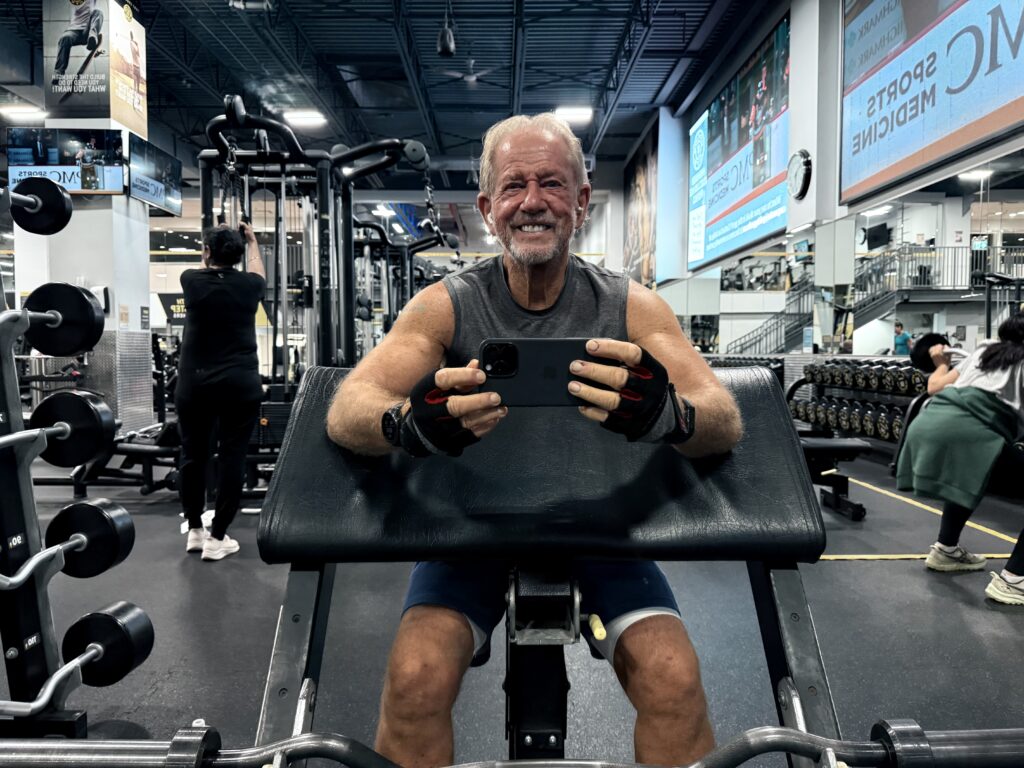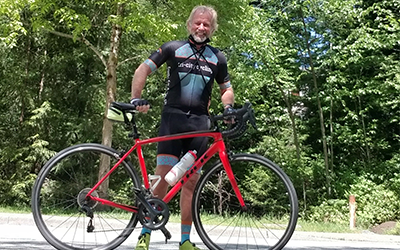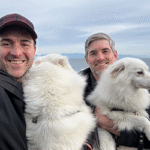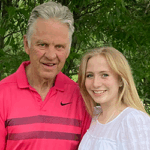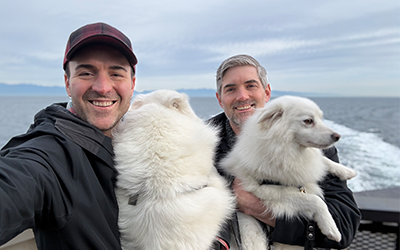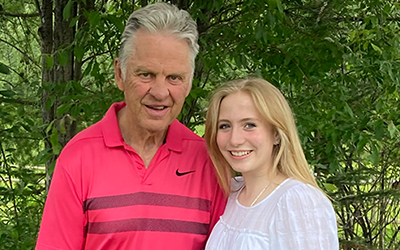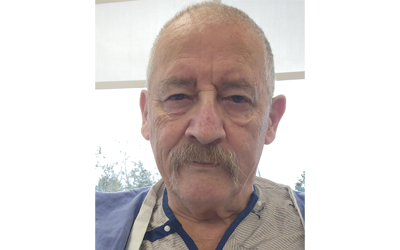When David Walker sees himself in the gym mirror doing bicep curls, he does not see a guy with Parkinson’s disease (PD). The lifelong exercise enthusiast sees resilience, creativity, and gratitude – the values that have always defined him.
Born in Portrush, Northern Ireland, David immigrated with his family to Toronto in 1954. A graduate of the University of Guelph, he worked as a Landscape Architect before a brief volunteer experience with a charity altered the course of his life. That involvement subsequently led to a 47-year-long career in the charitable sector, focused on relief and humanitarian work that took him to over 60 countries, including serving as Vice President of World Vision Canada.
David and his wife, Janet, began enjoying retirement by dividing their time between Coquitlam, BC and San Jose del Cabo, Mexico. Shortly after he retired, at the age of 73, David noticed he was having difficulty swinging his left arm during Greyhounds Masters Track and Field Club meetings. No matter how much his coaches urged him to do it, he physically could not, planting the seeds in David’s mind that what he was experiencing was Parkinson’s. “Deep down, I think I always knew,” he says. In January 2023, he flew back from Mexico to receive the formal diagnosis at the Djavad Mowafaghian Centre for Brain Health at the University of British Columbia.
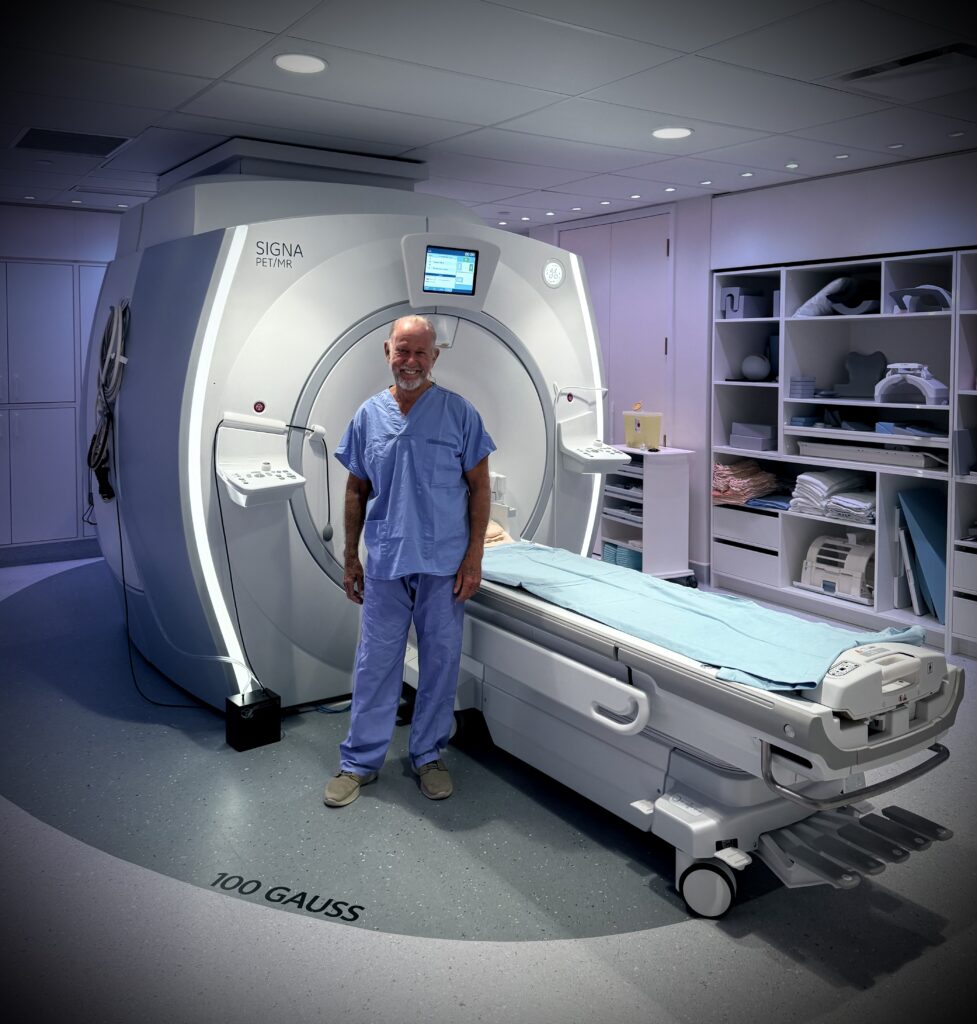
His initial reaction was to meet and speak with as many people with PD-specific knowledge as possible – including the CEO of Parkinson Society BC (PSBC). “I bombarded them with questions,” he reflects. Now looking back on his diagnosis, he urges others going through the same thing to get reliable information and facts. “Frankly, I would go straight away to Parkinson Society BC – read their qualified literature and meet with their professional staff,” David says.
The next thing he did was to speak with other “Parkies.” Lunch, coffee, phone chats – all of these opportunities for connection gave David real insight into the illness, which he approached with sensitive ears and a patient heart. “Nothing like talking to us folk to get the real goods along with the authentic headaches and triumphs,” he says.
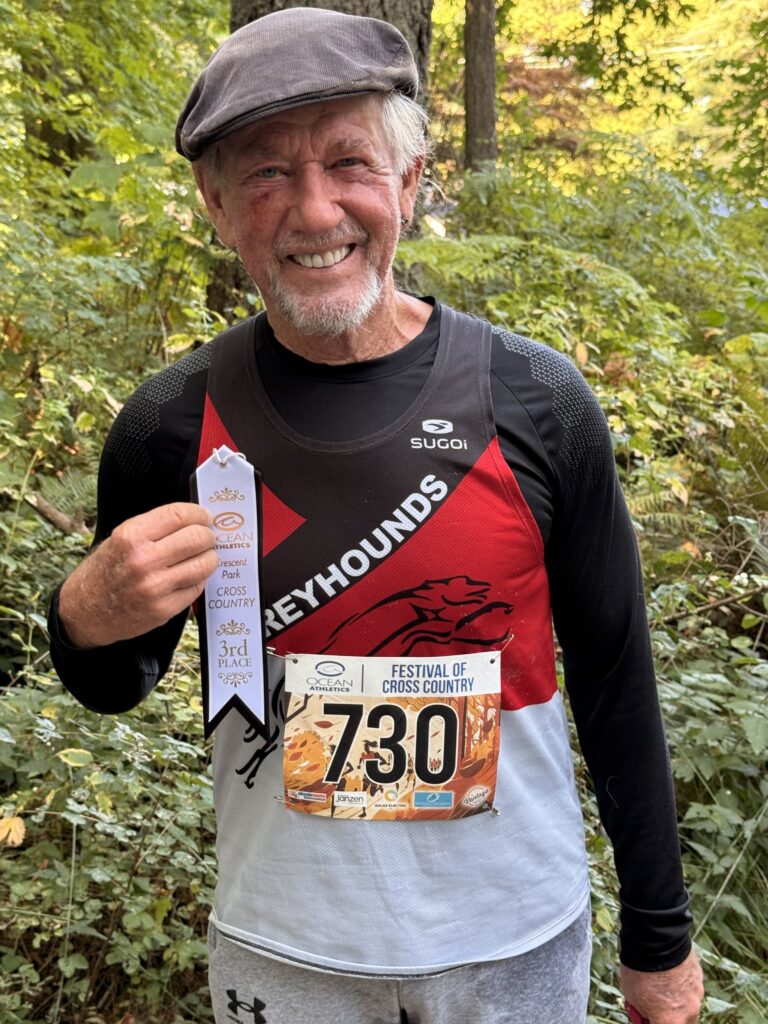
Through his experience living with Parkinson’s, David has learned to pay attention to the ebb and flow of symptoms. Some days present new challenges, while others bring relief, or a symptom he thought had eased may return. He meets each change head on, using tools like his watch alarm every three hours to stay on top of his medication and maintain his daily routine.
He is also a proud research participant, having volunteered in four studies to date with the Pacific Parkinson’s Research Institute. He encourages others who are able to lend a hand to sign up, in hopes that their collective efforts will slow down the advancement of PD.
David’s ultimate inspiration is to “squeeze all the juice out of this sweet life that [he] has today.” Exercise has played a major role in allowing him to do this by giving him goals to work towards, a structured timeline for training, and enjoyment once the finish line is crossed. Though a challenge of living with PD is to keep thinking and acting “big,” even when physically and mentally his world becomes smaller and more limited, he says he wakes up each day to live on the edge of whatever is possible. When life forces him to let go of a monumental goal, such as an Ironman competition, David embraces smaller, but just as valuable experiences, like competing in an eight-kilometre fun run. In this way, he continuously adapts, starting small but thinking big.
